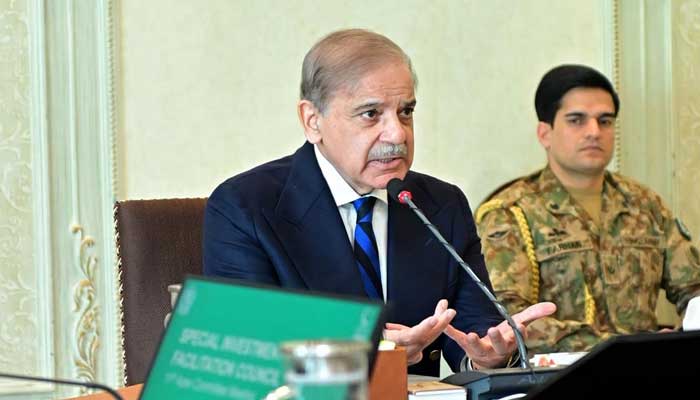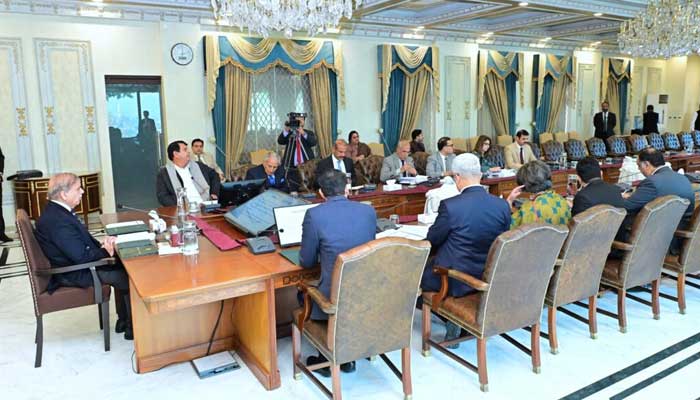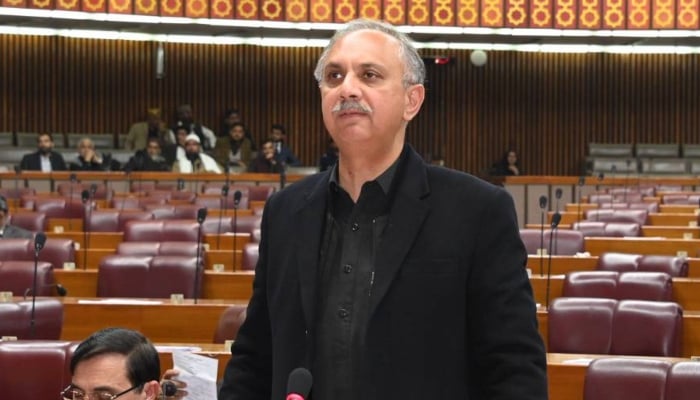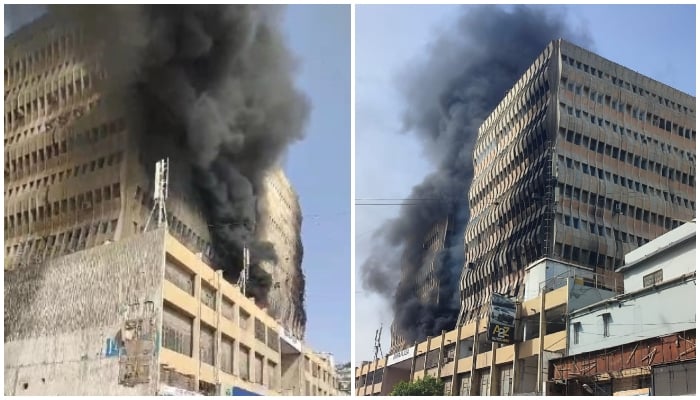Govt, JUI-F ‘settle all differences’ on contentious madrassa registration bill
Gazette notification of madrasa registration act likely to be issued in next two days, says Senator Murtaza
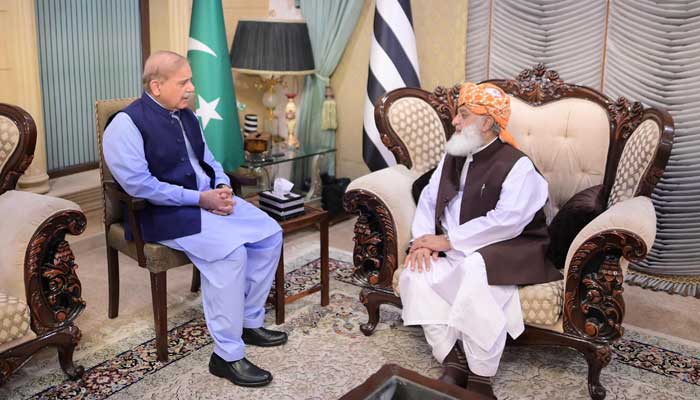
- Murtaza says he, law minister finalised draft of legislation.
- “Another amendment to be made to Madrassas Act eventually.”
- Move to fulfill demands of all factions of madrassas: JUI-F senator.
As the controversy surrounding the Societies Registration (Amendment) Bill 2024 came to an end earlier this month, Jamiat Ulema-e-Islam Fazl (JUI-F) Senator Kamran Murtaza on Wednesday said that all differences between the government and his party have been resolved with the authorities likely to notify the madrassa registration bill “in next two days”.
“A gazette notification of the madrasa registration act passed in light of the 26th Constitutional Amendment likely to be issued in next two days,” the JUI-F senator said while speaking to Geo News.
His comments come after the government, following the meeting between Prime Minister Shehbaz Sharif and JUI-F chief Maulana Fazlur Rehman, reportedly “accepted all demands of the Ittehad Tanzeemat-e-Madaris Deenia (ITMD)” regarding the contentious madrassa registration bill.
The disputed madrassa bill, which has already been passed by both houses of parliament, became a bone of contention between the Jamiat Ulema-e-Islam-F (JUI-F) and the government.
Its enactment was part of an agreement between the government and the religio-political party for supporting the 26th Amendment, Fazl had said previously.
Following its approval from parliament, the bill now requires the president’s assent to become law but President Asif Ali Zardari had returned the bill, citing legal objections. According to the Constitution, the bill must be tabled before a joint sitting after the president refuses to sign.
Article 75 (2) of the Constitution of Pakistan states: “When the President has returned a Bill to the Majlis-e Shoora (Parliament), it shall be reconsidered by the Majlis-e-Shoora (Parliament) in joint sitting and, if it is again passed, with or without amendment, by the Majlis-e-Shoora (Parliament), by the votes of the majority of the members of both Houses present and voting, it shall be deemed for the purposes of the Constitution to have been passed by both Houses and shall be presented to the President, and the President shall give his assent within ten days, failing which such assent shall be deemed to have been given.”
The new bill amends the existing procedure for registration of madrassas with the education ministry, stating that the institutions should be affiliated with the industries ministry instead.
Speaking to Geo News today, Senator Murtaza said that he and Minister for Law and Justice Azam Nazeer Tarar have finalised the draft of the legislation. “The matter will be completely resolved with the issuance of the notification.”
When asked about the objections raised by Pakistan Ulema Council (PUC) Chairman Allama Tahir Ashrafi, the JUI-F senator said it had been decided that another amendment would be made to this act eventually.
“In the new amendment, registration with the Ministry of Education or as per the Society Registration Act will be madrassas’ discretion,” he said, adding that the move would fulfill the demands of all factions of madrassas.
‘Madrassa Act likely to lead to FATF, GSP+ curbs’
As per the sources, the president raised eight objections over the bill Societies Registration (Amendment) Bill 2024, under which madrassas would be registered.
President Zardari expressed fear that if the madrassa bill turns into a law, seminaries will be registered under the Societies Act, which may lead to the imposition of Financial Action Task Force (FATF), Generalised Scheme of Preferences Plus (GSP+), and other sanctions on the country.
He highlighted a potential conflict of interest arising from the registration process and expressed concerns about potential negative consequences for Pakistan’s international standing and internal stability.
According to the objections, the registration of religious seminaries under the law would lead to the spread of sectarianism and the establishment of many seminaries in the same society would lead to deterioration of the law and order situation. The president objected that there was a contradiction in the definition of madrassa in various provisions of the new bill.
He objected that by registering madrassas as societies, they could be used for purposes other than education; there was a contradiction in the definition of madrassas in various clauses of the bill.
The registration of madrassas in the society would lead to a conflict of interest and such a conflict of interest would also lead to international criticism, while the approval of the bill could lead to a change in the FATF and other international organisations’ opinions and ratings of Pakistan, the objection by the president said.
The president suggested to the members of the assembly that international issues should be taken into account while drafting a bill related to madrassas.



